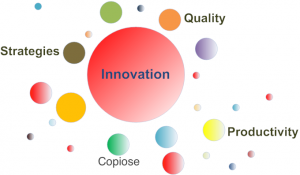Editor's Note: Take a look at our featured best practice, Total Quality Management (TQM) (181-slide PowerPoint presentation). Total Quality Management (TQM) is a strategic approach that embeds a culture of continuous improvement across an organization. It goes beyond processes and outcomes, fostering a mindset where every function, system, and individual contributes to quality and excellence. By engaging all [read more]
* * * *
 The emergence of total quality management (TQM) has been one of the major developments in management practice. The recognition of TQM as a competitive advantage is wide spread around the world and today, very few (especially manufacturing) companies can afford to ignore the term TQM (Dean and Bowen, 1994).
The emergence of total quality management (TQM) has been one of the major developments in management practice. The recognition of TQM as a competitive advantage is wide spread around the world and today, very few (especially manufacturing) companies can afford to ignore the term TQM (Dean and Bowen, 1994).



